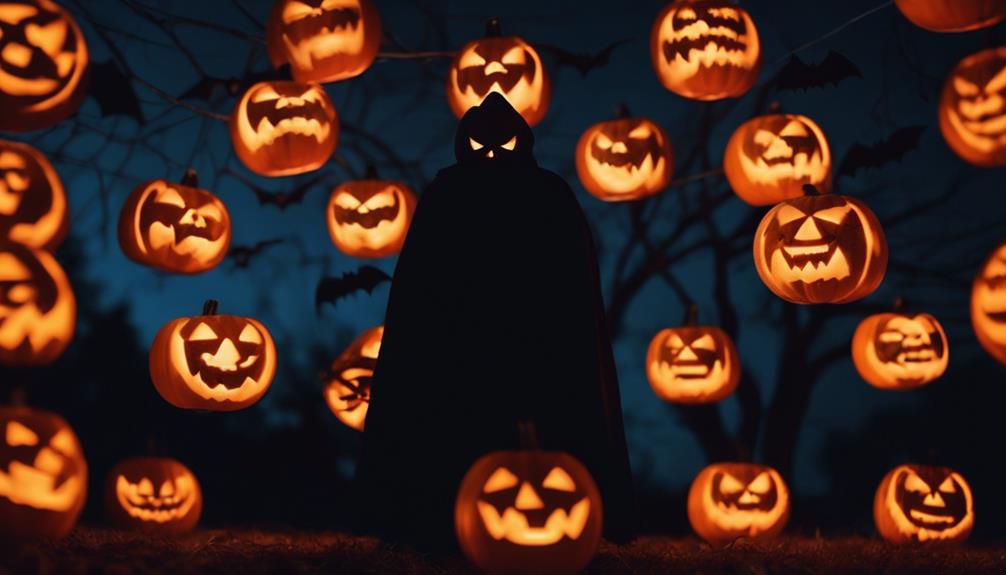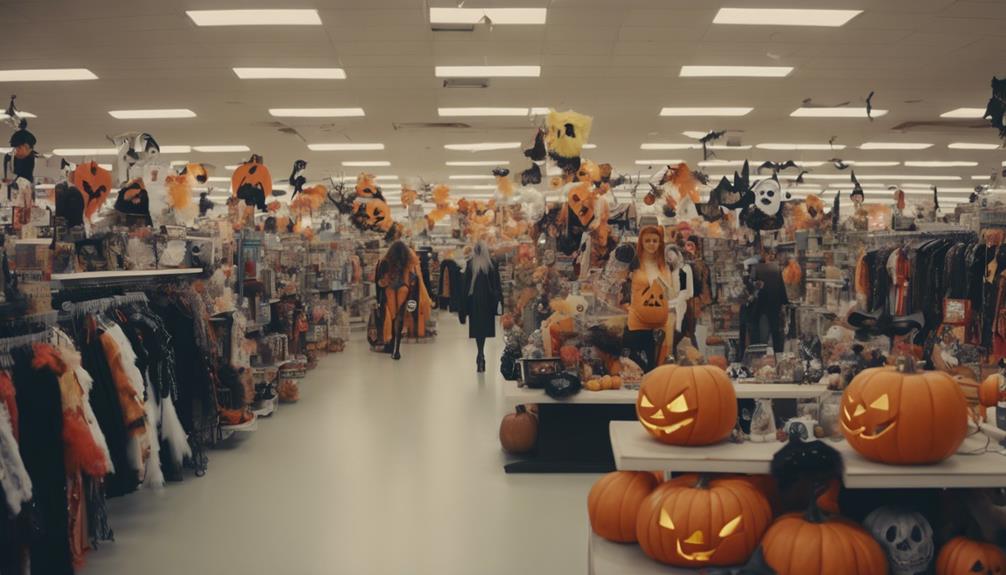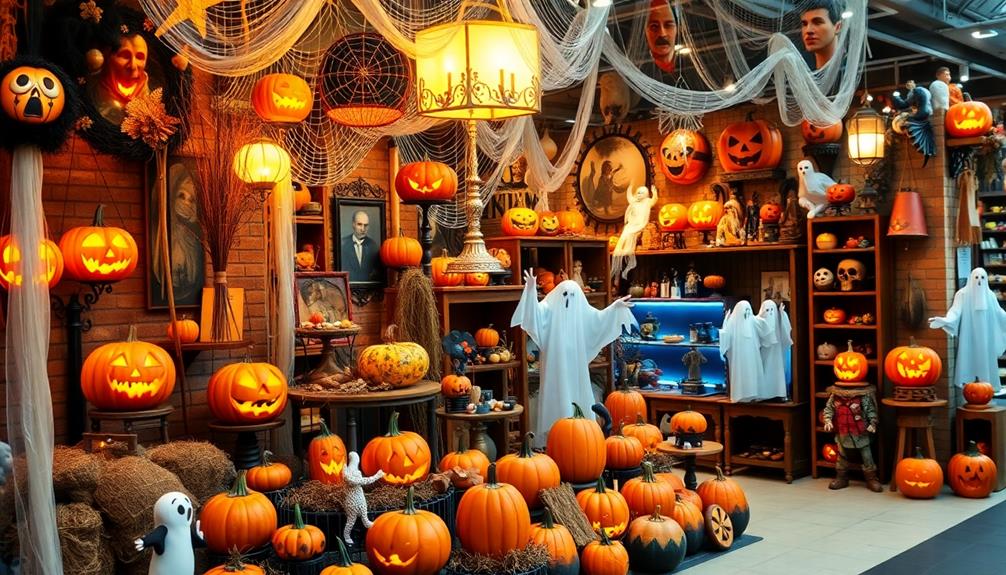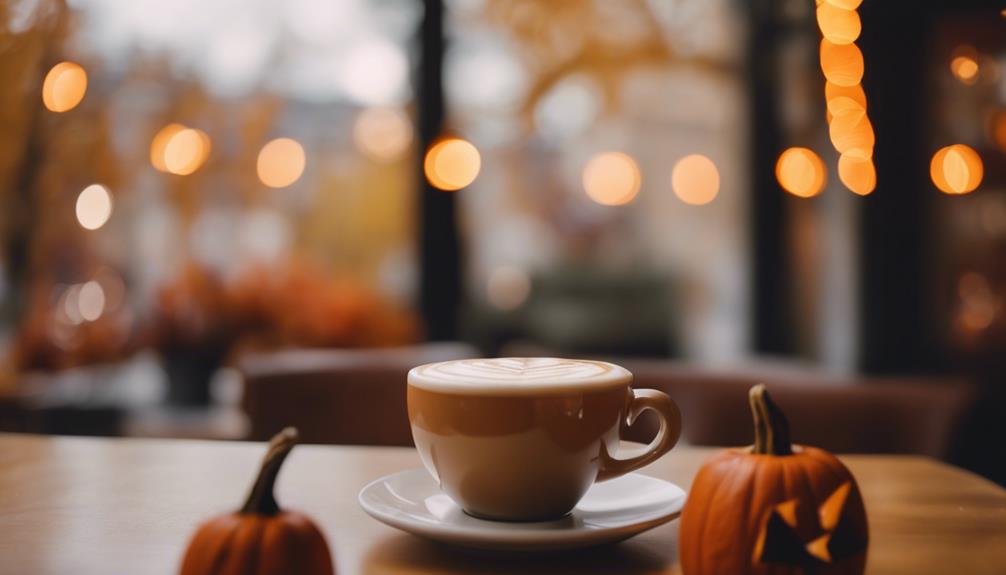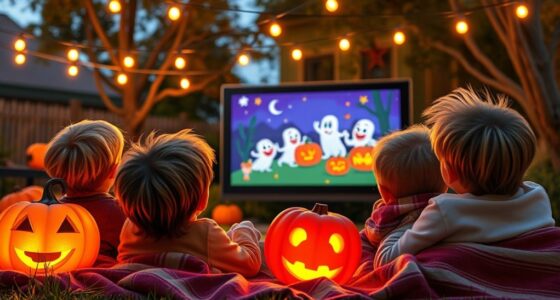No, Halloween is not the Devil's birthday. It has roots in ancient Celtic customs and has evolved through various cultural influences. Originally tied to the Celtic festival of Samhain, it marked the end of harvest and start of winter. Over time, Christian traditions wove into Halloween, shaping the celebration as understood today. Despite misconceptions, Halloween is not inherently evil but rather a blend of cultural practices. By understanding its historical context, you can appreciate its significance beyond surface misconceptions. Want to uncover the true origins and significance of Halloween beyond its popular misconceptions?
Key Takeaways
- Halloween is not the Devil's birthday; it originated from a Celtic festival, not associated with demonic celebrations.
- The misconception of Halloween as the Devil's birthday is a modern misinterpretation of its historical roots.
- Understanding the origins of Halloween reveals its pagan and Christian influences, not devil worship.
- The Devil's birthday association with Halloween is a myth perpetuated by misunderstandings and misconceptions.
- Halloween has evolved from ancient traditions and is not inherently linked to devil worship.
Origins of Halloween
The origins of Halloween can be traced back to the ancient Celtic festival known as Samhain. This festival marked the end of the harvest season and the beginning of winter for the Celtic people. During Samhain, they believed that the boundary between the living and the dead became blurred, allowing spirits to roam the earth freely. To protect themselves from malevolent spirits, the Celts wore costumes and lit bonfires. Offerings were also made to appease the spirits during this time.
The ancient Celtic traditions of Samhain eventually evolved with the influence of the Christian church. All Saints' Day and All Souls' Day were established, incorporating elements of the Celtic festival. Over time, these celebrations merged, leading to the modern-day Halloween observed on October 31st. The origins of Halloween, deeply rooted in ancient Celtic beliefs and practices, continue to shape the way we celebrate this holiday today.
Historical Evolution of Halloween
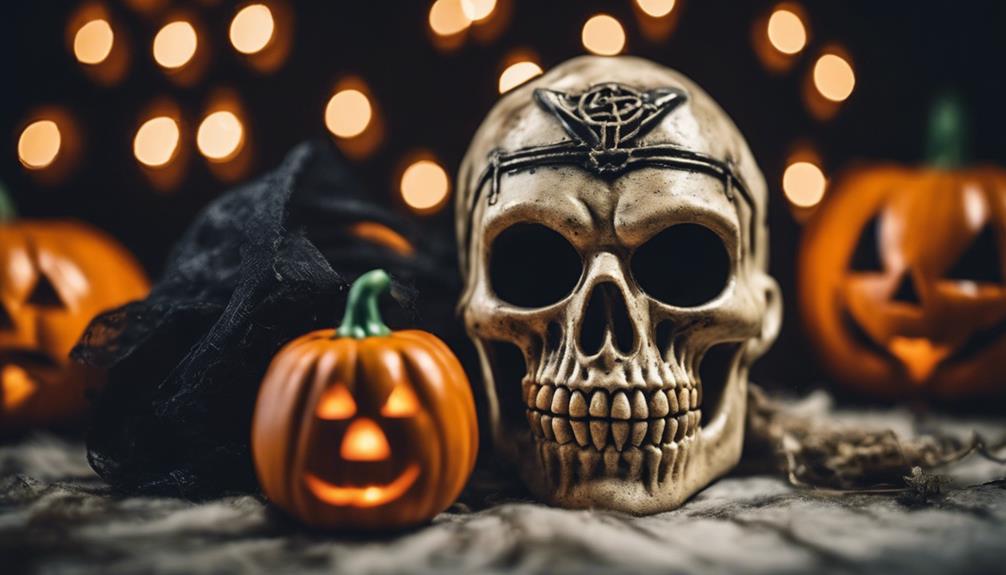
Halloween's historical evolution traces back to the Celtic festival of Samhain, where the veil between the living and the dead was believed to be at its thinnest.
The incorporation of pagan traditions into Christian observances eventually led to the development of modern Halloween customs, such as dressing up in costumes and lighting bonfires.
Understanding the historical roots of Halloween sheds light on the diverse cultural influences that have shaped this festive occasion.
Origins of Halloween
Originally stemming from the ancient Celtic festival of Samhain, marking the shift from harvest season to winter, Halloween's roots delve deep into a world where the living and the dead intertwined. As you celebrate Halloween, understanding the history behind this holiday adds layers of meaning to your festivities.
Here are four key points to help you grasp the origins of Halloween:
- Celtic Origins: Halloween finds its beginnings in the Celtic festival of Samhain, a time when the boundary between the living and the dead was believed to be thin.
- Christian Influence: Over time, elements of Samhain were incorporated into All Saints' Day by the Christian Church, shaping Halloween into what it's today.
- Costume Tradition: The practice of wearing costumes on Halloween can be linked back to the Celtic idea that disguises could ward off malevolent spirits.
- Historical Evolution: Halloween has evolved through a combination of ancient Celtic customs, Christian traditions, and modern commercial influences, creating the holiday we celebrate today.
Cultural Traditions and Symbols
Exploring the cultural tapestry woven through Halloween's historical evolution reveals a rich array of traditions and symbols that have endured across centuries. The practice of wearing Halloween costumes, particularly scary costumes, dates back to the ancient Celtic festival of Samhain. The Celts believed that by dressing up in frightening attire, they could confuse malevolent spirits and protect themselves from harm as the boundary between the living and the dead blurred during this time.
As Halloween evolved over the years, it incorporated a mix of cultural influences, resulting in the diverse array of symbols associated with the holiday today. From jack-o'-lanterns to witches, black cats, and ghosts, these symbols have become emblematic of Halloween through its historical development. The blending of pagan, Christian, and commercial elements has contributed to the rich tapestry of Halloween traditions that continue to captivate people worldwide.
These symbols serve as a reminder of the deep-rooted history and significance of Halloween as a celebration that intertwines the past with the present.
Modern Halloween Celebrations
In modern Halloween celebrations, the historical evolution of the holiday is evident in the diverse mix of traditions and influences that have shaped its current form. Here are four key aspects that highlight the blend of ancient traditions and Christian faith in today's Halloween festivities:
- Ancient Celtic Roots: The foundation of Halloween can be traced back to the ancient Celtic festival of Samhain, where the boundary between the living and the dead was believed to be thin, paving the way for the spirits to visit the earthly domain.
- Christian Influence: As Christianity spread, elements of Samhain merged with Christian traditions, such as All Saints' Day and All Souls' Day, creating a hybrid celebration that integrated spiritual beliefs with pagan customs.
- Costume Tradition: The practice of wearing costumes on Halloween originated from the ancient belief that disguises could ward off malevolent spirits during Samhain, showcasing how ancient customs have endured through the centuries.
- Modern Commercialization: Today, Halloween incorporates commercial aspects like themed decorations, costumes, and parties, blending ancient traditions with contemporary consumer culture to create a multifaceted and evolving holiday experience.
Misconceptions About Halloween
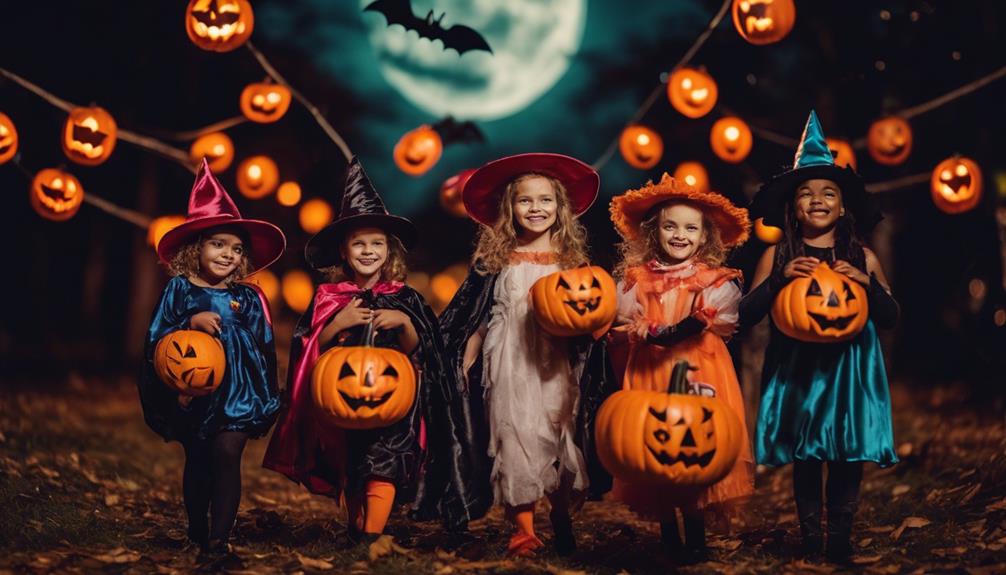
Could there be widespread misconceptions about Halloween that blur its true nature and significance? Absolutely.
One common misconception is that Halloween is the Devil's birthday, which is far from the truth. In reality, Halloween has its origins in a Christian holiday meant to honor saints and martyrs. The association with evil or Satan is a modern interpretation that strays from the traditional meaning of the celebration.
The commercialization and secularization of Halloween have also played a role in fostering misconceptions about its origins. By understanding the true history of Halloween, we can dispel myths and misconceptions that suggest a connection to the Devil.
Religious Perspectives on Halloween
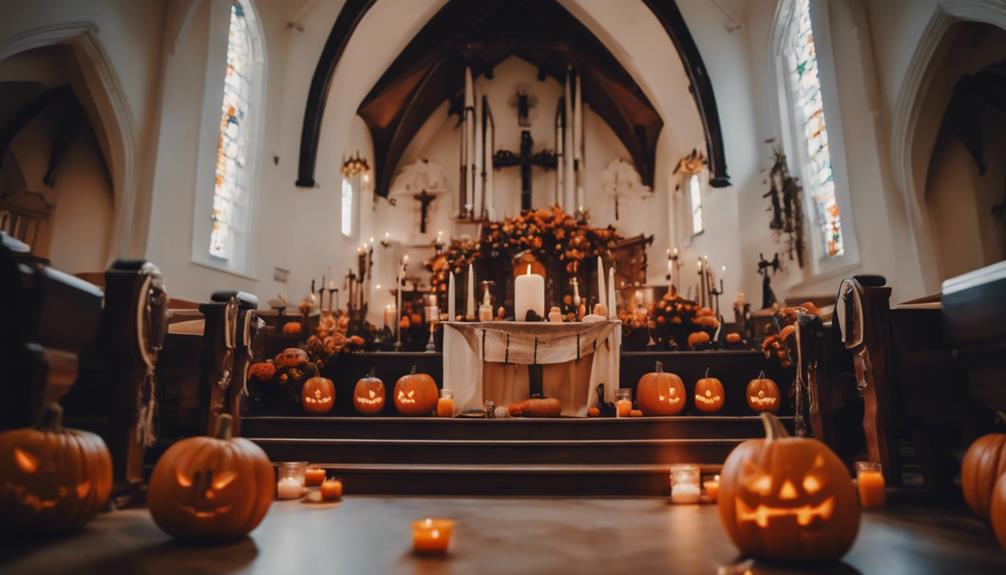
Considering differing beliefs, Halloween can be viewed from various religious perspectives. When it comes to religious views on Halloween, there are several angles to ponder:
- Conflicting Beliefs: Some religious institutions see Halloween as conflicting with their beliefs due to activities like fortune-telling and black magic.
- Debates Within Communities: There are ongoing debates within religious communities regarding whether individuals should partake in Halloween festivities.
- Balancing Values: Finding a middle ground between religious values and enjoying Halloween involves contemplating the intention behind participating in the holiday observance.
- Compromise Possible: While it may seem challenging, some individuals manage to strike a compromise between their religious beliefs and the enjoyment of Halloween.
It's important to reflect on how Halloween celebrations align with your religious beliefs, considering the potential impacts on your mental and physical well-being. Ultimately, each individual's approach to Halloween in light of their religious perspective varies, and it's vital to respect these differences.
Celebrating Halloween Responsibly
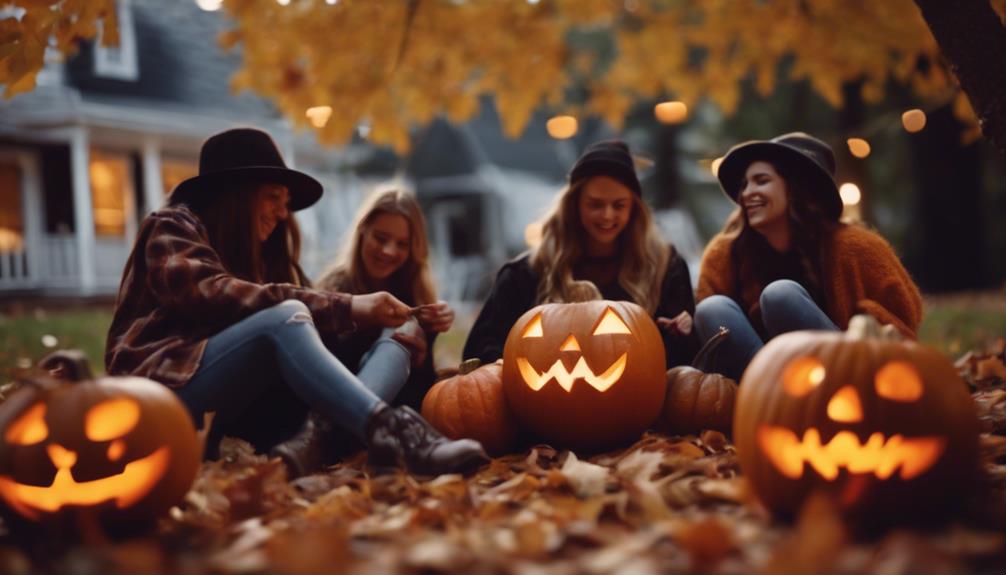
Exploring the intersection of Halloween festivities with your Christian beliefs involves consciously aligning your activities with values that reflect light and positivity. Celebrating Halloween responsibly means focusing on the positive and uplifting aspects of the holiday while staying true to your faith. It's important to choose costumes, decorations, and activities that resonate with your Christian beliefs and promote goodness.
Engaging in Halloween outreach programs organized by Christian ministries can provide a meaningful way to celebrate while spreading love and kindness in your community. Being mindful of how your actions during Halloween impact yourself and others is vital in maintaining a Christ-centered perspective. By making thoughtful choices that align with your Christian values, you can make sure that your celebrations are responsible and in harmony with your faith.
Conclusion: Understanding Halloween's Significance
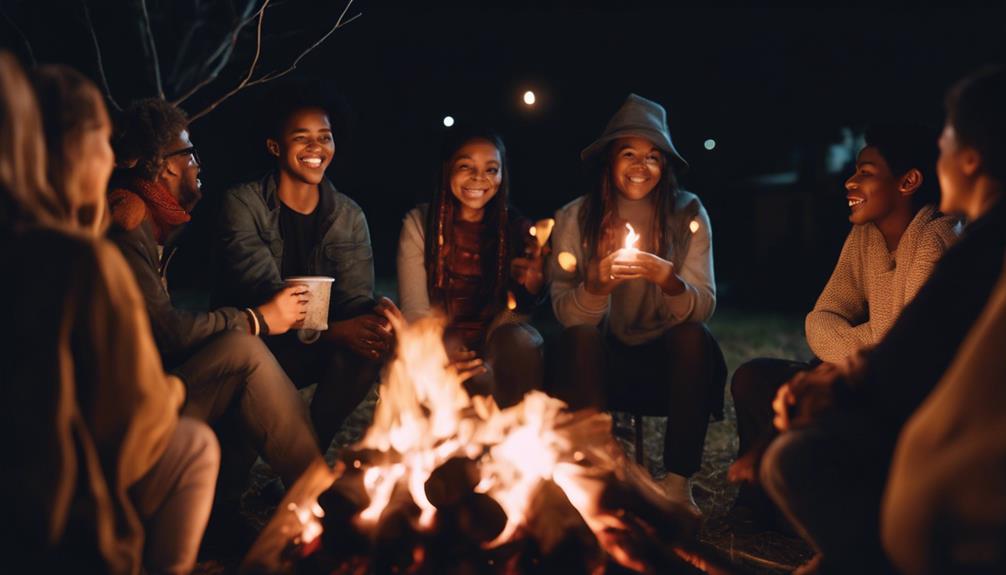
To understand the significance of Halloween, it's important to explore its historical origins and clarify any misunderstandings regarding its association with the devil's birthday. Here are four key points to help you grasp Halloween's true meaning:
- Halloween's roots lie in the Christian tradition, serving as the eve of All Saints Day, a time to honor saints and martyrs.
- The idea of Halloween being the devil's birthday is a fabricated notion without historical or religious basis.
- Many Christian perspectives view Halloween as a neutral holiday, emphasizing community, fun costumes, and harmless activities.
- Understanding the historical origins and intent of Halloween can dispel misconceptions, allowing individuals to celebrate without compromising their religious beliefs.
Frequently Asked Questions
What Does the Bible Say About Halloween?
The Bible doesn't mention Halloween specifically, as it's a modern holiday with pagan roots. However, it does caution against practices like witchcraft and divination.
As a Christian, focusing on what's pure and good can guide your views on Halloween. Understanding its historical context can help you approach the holiday with discernment.
Remember to prioritize what aligns with your beliefs and values when deciding how to engage with Halloween.
Is December 11 the Devil's Birthday?
No, December 11 isn't traditionally associated with being the Devil's birthday. There's no historical or religious significance linking this date to Satan.
Claims about December 11 being the Devil's birthday are likely based on misconceptions. It's important to differentiate between factual information and unfounded beliefs regarding this topic.
December 11 holds no known connection to Satan in religious or cultural contexts.
What Does It Mean if Your Birthday Is on Halloween?
If your birthday falls on Halloween, it means you get to enjoy a unique and exciting celebration! People born on this spooky holiday often embrace the festive atmosphere by incorporating both birthday traditions and Halloween fun into their special day.
From themed parties to creative costumes, those born on Halloween have the opportunity to make their birthdays extra memorable with a touch of spooky flair. Enjoy the best of both worlds on your special day!
Are Christians Allowed to Celebrate Halloween?
Yes, Christians are allowed to celebrate Halloween. It's a personal choice, with many finding ways to incorporate their faith into the festivities.
In fact, a survey found that 32% of Christians see Halloween as a fun cultural event and not tied to any religious beliefs. You can choose to participate in wholesome activities while staying true to your beliefs.
Ultimately, how you celebrate is up to you, and others should respect your decision.
Conclusion
To sum up, Halloween isn't the devil's birthday. It's a holiday with roots in various cultural traditions and should be celebrated responsibly.
Understanding the history and significance of Halloween can help dispel misconceptions and promote a fun and safe celebration for all.
So next time you see a spooky costume or jack-o'-lantern, remember the true spirit of Halloween and enjoy the festivities with a newfound perspective.
Happy Halloween!
